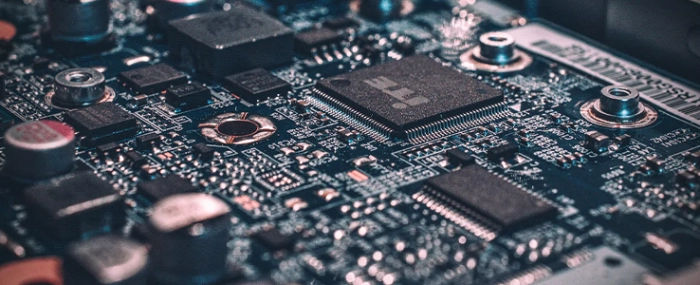
Locating PFAS in your electronics supply chain
The electronics industry is currently one of the largest users of PFAS. However, the EU is on track to pass a comprehensive ban, requiring industry to phase out these "forever chemicals."
Due to this development, The International Chemical Secretariat otherwise known as ChemSec, has published a report mapping out the usage of PFAS in electronics and also suggesting potential substitutes. PFAS have a variety of favourable properties that make them suitable for use in electronic products, including water repellence, flame retardance, and chemical inertness. In the report, the independent non-profit organisation identifies 77 different uses for PFAS in the electronics industry.
These include everything from complete products such as smartphones to cornerstones such as PCBs, solar panels and cables. In the report, ChemSec states that products with high PFAS usage and those with viable substitutes should be given priority when it comes to replacement. This category includes PCBs, capacitors, wiring and cables, as well as heat transfer fluids and dielectric fluids used in the manufacturing process.
The electronics and semiconductor industry currently uses 4,400 tonnes of PFAS per year in the EU. This number is however expected to increase to almost 100,000 tonnes in 30 years' time, ChemSec reports.
Potential limitations and restrictions on the usage of PFAS could therefore present a challenge to manufacturers, which is why Evertiq will highlight the topic during Evertiq Expo Tampere on November 29, 2023.
But what are PFAS really?
PFAS is a group of synthetic chemicals found in a wide array of consumer and industrial products since the 1950s. They have grown in usage due to their physical and chemical properties, such as water-,oil- and grease-repellence and high chemical and thermal stability. However, some of the PFAS's physicochemical characteristics that have made them so beneficial may potentially have detrimental effects on the environment and public health. Due to their resilience to degradation, and high mobility in the environment PFAS are now found everywhere – and a number of them are also known to exhibit toxic and/or bioaccumulative properties.
The European Commission has recommended that actions should be taken to make sure that PFAS phased out on an EU level – unless demonstrated to be essential for society. In February 2023, five EU member states proposed restricting the use of all PFAS in all products, with certain time-limited derogations.
For this very reason, Evertiq has decided to shine a light on the topic during the Evertiq Expo Tampere and has invited Juhana Jaatinen from RoHS Management Oy, to talk about the looming restrictions in the EU – which presents a challenge to manufacturers.
As stated earlier, PFAS can be found in a multitude of different products and usages within the electronics industry. In some cases, they are only used in the manufacturing process of a given product, which is an issue primarily for potential environmental contamination. However, before the looming ban is a fact, gathering insights and knowledge on how to proactively address the upcoming restrictions could be beneficial – like the report states; "Check your tech".


